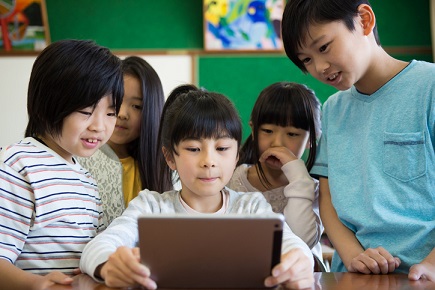
During the last decade, the use of social media among adolescents has rapidly increased, creating both challenges and opportunities for students and schools.
On the positive side, social media is being used to streamline communication, maintain social connections and support networks that otherwise wouldn't be possible access more information than ever before.
However, social media has also presented a range of complex issues for children and schools. For example, cyberbullying, cyberstalking and anti-social behaviour that is driven by a preference to interact online rather than in person.
Now a new study has shed light on the way that children are using social media, and how they perceive it – an under-researched topic, according to the study’s authors.
The large-scale survey –‘Net Children Go Mobile’ – showed 27% of European children aged 9-10 years use SNS, while in the UK in particular, 20% of children aged 8-11 years use them.
The research confirmed previous studies showing that primary children are well informed about the dangers associated with social media sites and that girls especially appear to use them in a relatively thoughtful manner.
However, it highlighted the need to listen to children’s perspectives, as their perceptions of the positive and negative aspects of social media appear to be different from those of the researchers.
“Exploring this area more systematically is of utmost importance in order to support, protect and ultimately empower children to become creative, confident and responsible online citizens,” the researchers said.
Of all social media sites, Facebook was by far the most popular platform, being used by 96% of users aged 12-15 years, followed by Instagram and Twitter, being used by 36 and 28% respectively.
The researchers pointed to separate large-scale studies that show more than three-in-five children give a false age while using social media, due to the 13-year-old minimum age restriction.
Using a stratified random sample of 1,007 parents in the US also showed that 64% of parents who were aware when their child created a social media account helped their offspring create their accounts.
“Not only children are not offered age-appropriate support, but, as the current study confirmed, they appear to consider falsifying their age, and subsequently lying, normal practice,” the researchers said.
Children's charity the National Society for the Prevention of Cruelty to Children (NSPCC) has called on the British government to act on the issue of under-age profiles on social media.
“Social networks are clearly turning a blind eye when it comes to children under 13 signing up for their services,” the charity said in a statement.
“For too long sites like Facebook, Instagram and Snapchat have failed to protect children on their platforms and government urgently needs to step in.”


